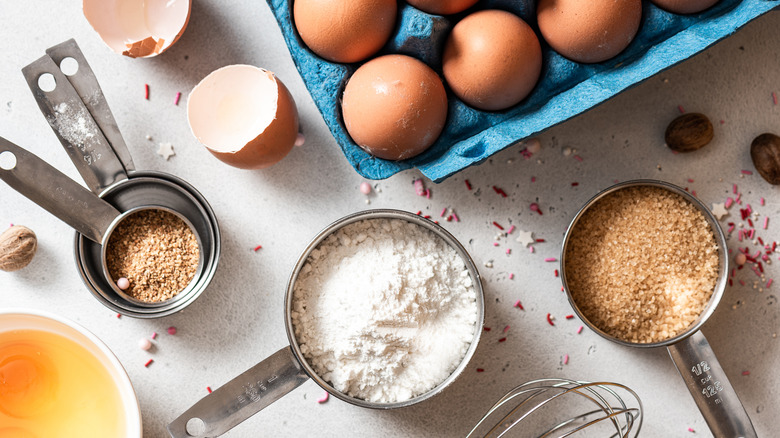Should You Bake On Humid Days?
If you're an at-home baker, you've been there. The air outside your house is hot and heavy, rain has started to tap on your window panes, and you've closed yourself inside to avoid the humidity. You have nothing to do but read, play cards, or watch some TV. But then you remember that one recipe from that wonderful cookbook that you've been waiting to try, so you rush to the kitchen and get to work.
Here's why you should absolutely not do that. We all know that baking is a science. It is made up of exact measurements, and time-sensitive mixtures, dependent on whether your ingredients are hot or cold ... you get the picture. Baking can be therapeutic, but it can also be incredibly frustrating if one or more things go haywire. Attempting to bake on humid days, is begging for things to go not quite right in your kitchen.
How does humidity affect your baked goods?
Luckily, it is easy to look up the humidity levels in your area these days. If the humidity in your vicinity is 60% or more, it can start causing problems inside the house, so consider putting off your next great baking adventure until the humidity gets below 50% (via Air Things).
According to the Farmers' Almanac, if you did try to bake on a humid day, your dry ingredients like flour, sugar, baking powder, etc. would absorb the moisture in the air and activate, clumping together. This additional moisture will then be incorporated into the rest of your bake and throw off its chemistry, producing some weird results. The good news is that if you've ever baked something that just came out weird, but you couldn't figure out why, one of the reasons could have been the humidity, not your poor kitchen skills. So, go ahead and give that recipe another try on a drier day.
But if you are pressed for time, and absolutely must bake something through a wave of humidity, Southern Living has some tips that will help stabilize the situation. Because the issue is that there is too much moisture in the air, reduce the amount of liquid you use in your dough or batter. If you live in a naturally humid area, start storing your sugar and flour in the freezer regularly, this will protect them from the excess humidity, and always have a fan or AC unit on if you are planning on baking.

